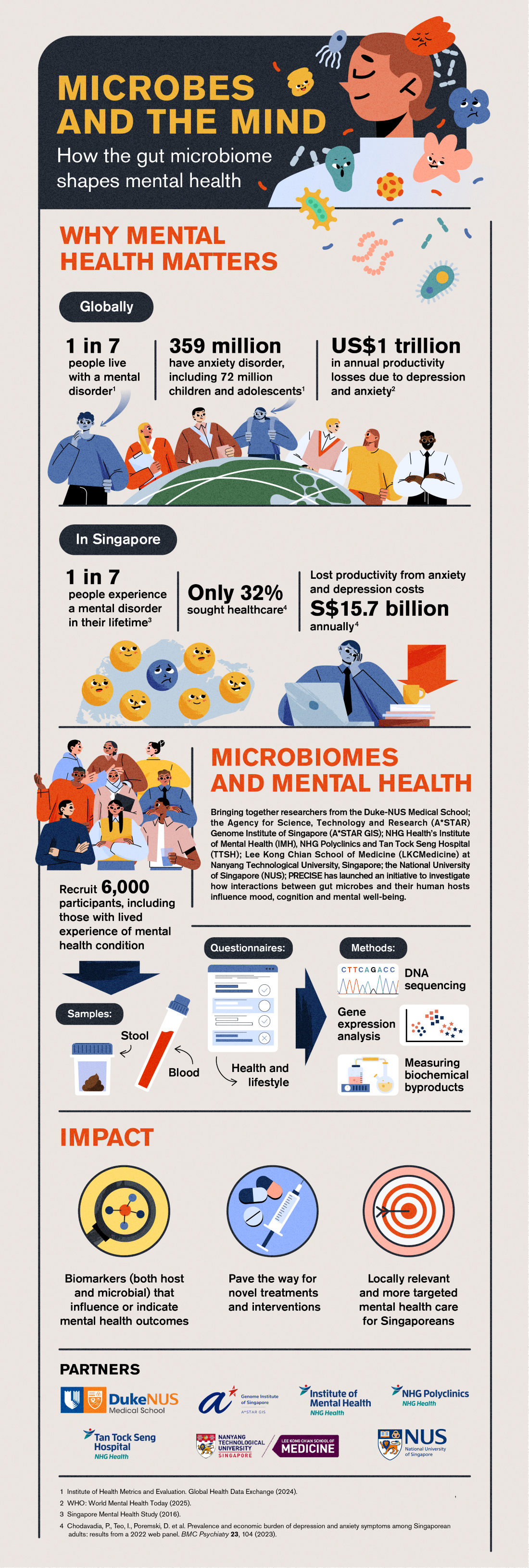GLOW (Gut Linked Outcomes in Wellbeing)
Overview
Microbiomes and Mental Health
The gut microbiome plays a powerful role not just in physical health, but in brain function and mental well-being. Growing evidence shows a deep connection between the gut and brain through complex biochemical and neural pathways, yet little is known about how diet and lifestyles influence mental health, mood and behaviour.
In October 2025, a research initiative including Precision Health Research, Singapore (PRECISE); Duke-NUS Medical School; the Agency for Science, Technology and Research (A*STAR) Genome Institute of Singapore (A*STAR GIS); NHG Health’s Institute of Mental Health (IMH), NHG Polyclinics and Tan Tock Seng Hospital (TTSH); Lee Kong Chian School of Medicine (LKCMedicine) at Nanyang Technological University, Singapore; the National University of Singapore (NUS) was launched. The multi-institutional effort is focused on a landmark study exploring the links between Asian gut microbiomes and mental health. This initiative comes at a time where the prevalence of poor mental health is increasing, making it a priority for Singapore.
Building on the National Precision Medicine (NPM) programme's PRECISE-SG100K cohort, the study will recruit over 6,000 participants, including individuals living with mental health conditions. Researchers will collect biological samples (stool, skin, blood) and conduct psychological assessments to gather data on participant mental health status, use multi-omics technologies to identify characteristics of the microbial communities inhabiting in participants, making this one of the largest Asian mental health-microbiome cohorts.
The goal is to uncover how interactions between host DNA (genetics) and gut microbes shape mood, cognition, and mental well-being, identify microbial signatures and biomarkers, and ultimately inform the development of more precise and locally relevant interventions. In the future, these findings could inform potentially leading to more targeted care, new dietary interventions or microbial therapies.
Click here for more details about the initiative.


